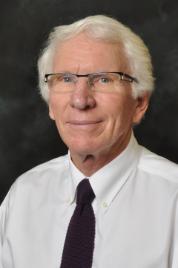Helping people pop the right mix of 'exercise pills'
Published on 12 April, 2012
Exercise is good for so many parts of the body that it would be worth billions of dollars if it came in pill form and was easy to prescribe.
It is worth considering how multinational drug companies would market exercise if exercise were a pill. They would certainly consider changing behaviours and making it easier for GPs to prescribe individual doses of exercise to their patients with minimal side effects.

Professor Gregory Gass is keen to build health research capacity
That's according to Professor Gregory Gass, who has joined CQUniversity as a Professorial Research Fellow for the Health Collaborative Research Network.
Professor Gass confesses that we still need to better translate our research findings from 'running rats and champion athletes' into sustainable exercise behaviours for the wider population, and particularly for the older person to maintain mobility for an independent lifestyle.
He's enthusiastic about combining CQUniversity's renowned expertise in the Institute for Health and Social Science Research with the behavioural aspects of exercise and exercise sustainability.
"As we get older, we are decaying; if one part of our body fails, it can set off a chain reaction that includes further sedentary behaviour and bedrest.
"Exercise is still an under-utilised therapeutic intervention for keeping older people out of hospitals and nursing homes and keeping them functional and independent and in their own homes. Regular exercise also has a potential social networking benefit," Professor Gass says.
"We need to recognise the physiological and behavioural complexity involved with exercise and exercise sustainability."
The new Health Collaborative Research Network has $5.53 million in Commonwealth funding to develop partnerships between the regionally-based CQUniversity and its capital city cousins, the University of Queensland, Queensland University of Technology and Curtin University.
Professor Gass has held senior leadership positions as Head, School of Health Sciences at Bond University, and as Head of Department of Health, Nutrition and Exercise Science at North Dakota State University. After completing his PhD at The University of Illinois, Professor Gass' career blended academic achievement with clinical practice and internationally acknowledged research.
He has been Chief Investigator on five NHMRC grants, published widely and invited to chair international conferences. In 2007, Professor Gass secured an NHMRC grant to lead a three-year study into the exercise dose-response relationships in older women, which ultimately aims to help general practitioners and other health professionals design appropriate exercise regimes that will delay the onset of chronic disease and disability in older females.
As Professorial Research Fellow, Professor Gass is excited about sharing his experience and knowledge. He will work with the other three Health CRN Professorial Research Fellows to help build health-related research capacity across CQUniversity. In particular, Professor Gass will work with researchers and higher degree research students in the exercise sciences and with those focused on the primary and secondary prevention of chronic disease in the community. Professor Gass will help develop collaborations with our three Health CRN partners.
The HEALTH CRN allows researchers to engage in collaborative opportunities with partnering universities, receive research training and mentorship and increase research capacity at CQUniversity.
Researchers interested in accessing the HEALTH CRN are encouraged to visit www.cqu.edu.au/crn

